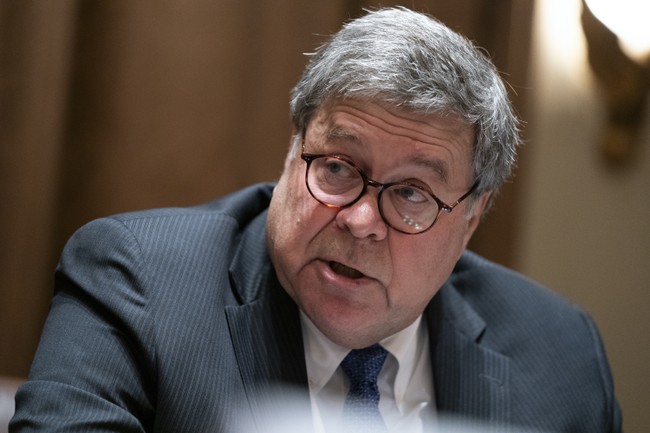Trump's Legal Battles Amid Presidential Return
Explore the multifaceted legal challenges facing Donald Trump as he secures another term in the White House, despite ongoing criminal charges.
Published November 07, 2024 - 00:11am

Image recovered from redstate.com
The recent U.S. presidential election has seen Donald Trump reclaiming the presidency. However, his victory is marred by a complex entanglement of ongoing legal battles that continue to cast a shadow over his political triumph. These issues reflect the turbulent intersection of electoral politics and judicial proceedings that have become a hallmark of Trump's political journey.
Former Attorney General Bob Barr has voiced the opinion that legal proceedings against Trump, which have been lingering for years, should be abandoned in light of his election by the American people. Barr's sentiment suggests a respect for the electoral verdict, implying that the judiciary should take a step back in what some perceive as political lawfare. Barr's position underscores the tension between legal accountability and political mandate, a scenario that has polarized opinions across the U.S.
Trump's re-election has renewed discussions about the immunity attached to his presidential status. While presidential immunity could shield him from certain legal challenges during his term, the distinction between actions performed in an official capacity and those outside presidential duties remains a contentious issue. This debate has roots in several cases involving Trump, including allegations of election interference in 2020, where the nature of his immunity is being scrutinized.
At the federal level, Special Counsel Jack Smith has been a central figure in proceedings against Trump. Accusations against him pertain to alleged efforts to overturn the results of the 2020 election and the retention of classified documents. The U.S. Supreme Court has already weighed in, affirmatively granting Trump substantial immunity in at least one federal case, forcing adjustments in the prosecution's strategy.
On the state level, Trump faces charges in New York and Georgia. The case in New York involves falsifying business records tied to hush money payments to Stormy Daniels. Legal experts anticipated Trump's presidential status might delay these proceedings, although a sentencing decision remains pending. In Georgia, the charges relate to Trump's alleged attempts to influence the 2020 election outcome, a matter currently on pause pending further judicial review.
The implications of these legal battles are far-reaching. In the political sphere, Trump's victory speech emphasized a commitment to significant policy changes, yet the specter of legal uncertainties may influence his administration's agenda. His legal team remains engaged in efforts to postpone or dismiss these cases, advocating for their irrelevance in light of the electoral outcome.
The Republican Party's response is a careful navigation between celebrating a political victory and addressing the legal issues that could impact governance. The party's strategy includes a focus on campaign promises and proposed policy implementations, as articulated in Trump's Agenda47, while also confronting the judicial challenges head-on.
As Trump prepares to lead the country once more, the American legal and political landscapes find themselves in an extraordinary phase of intersecting narratives. The courts' handling of these outstanding legal matters will not only shape Trump's presidency but will also set significant precedents for the treatment of elected officials embroiled in legal disputes.
The ongoing debate around political accountability and judicial processes will continue to unfold, reflecting broader questions about the limits of presidential power and the role of judiciary checks within the democratic framework. Observers and constituents alike are braced for developments that will undoubtedly influence American political discourse and governance in the years to come.






